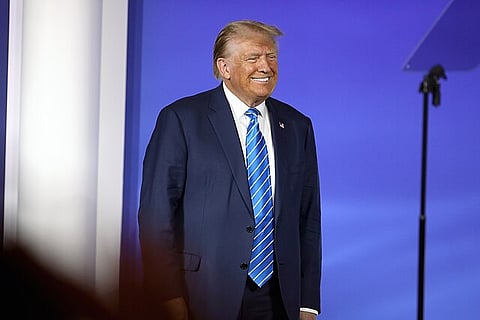

Judicial Rejection of Executive Overreach
The U.S. Court of Appeals for the District of Columbia Circuit declined to block a lower court ruling that prohibits President Donald Trump’s administration from unilaterally withholding billions in congressionally approved foreign aid. The appeals court found that the Trump administration failed to meet "stringent requirements" to justify pausing the lower court’s order pending appeal, effectively requiring the government to expedite spending on foreign aid projects before funding expires on September 30. This decision reinforces the principle that the executive branch cannot circumvent Congress’s power of the purse, a cornerstone of U.S. constitutional governance.
Lower Court’s Landmark Ruling
U.S. District Judge Amir Ali’s September 3 ruling mandated the administration to release $11.5 billion in foreign aid, emphasizing that the executive branch lacks discretion to ignore appropriations laws without congressional approval. Ali argued that Trump’s use of a "pocket rescission", submitting a rescission request late in the fiscal year to ensure funds expire before Congress can act was illegal. The ruling specifically targeted $4 billion withheld from the U.S. Agency for International Development (USAID), which the administration has systematically dismantled.
Political and Legal Context
The Trump administration defended its actions as necessary to eliminate "woke, weaponized, and wasteful spending," citing programs related to climate change, LGBTQ+ advocacy, and democracy promotion. However, critics, including Republican Senator Susan Collins, labeled the pocket rescission tactic a violation of the Impoundment Control Act and an effective line-item veto, a power struck down by the Supreme Court in 1998. The administration’s appeal to the D.C. Circuit followed a rushed legal process, with Judge Ali explicitly ruling quickly to allow higher courts to intervene before the September 30 funding deadline.
Implications for Presidential Power
This case represents a critical test of the balance of power between the executive and legislative branches. The appeals court’s decision, though unexplained, aligns with prior Supreme Court rulings requiring the administration to comply with appropriations laws. If upheld, it could curtail future presidents’ ability to use timing strategies to withhold congressionally mandated funds. The Supreme Court, which previously intervened in March 2025 to compel payment for already-completed work, may yet face another emergency petition.
Humanitarian and Global Repercussions
With $11.5 billion in aid, including funds for global health, HIV/AIDS programs, and UN peacekeeping at risk of expiring, the ruling has immediate humanitarian implications. Organizations like the Global Health Council and AIDS Vaccine Advocacy Coalition argued that withholding funds would cripple their operations and violate U.S. legal commitments. The decision also affects U.S. diplomatic influence, particularly as the administration sought to cut contributions to international organizations like UNESCO and UN peacekeeping missions.